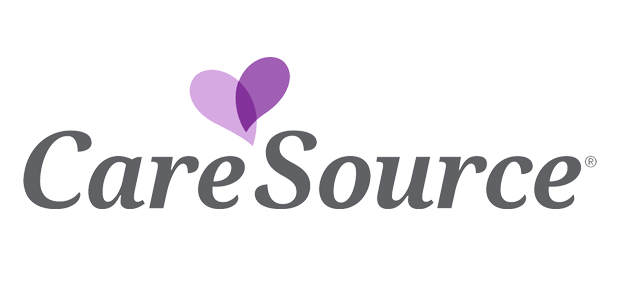Getting credentialed with CareSource opens doors to serving vulnerable populations across Ohio, Kentucky, Indiana, Michigan, and West Virginia. This managed care organization focuses heavily on Medicaid beneficiaries and dual-eligible members, making it an important network for providers committed to community health.
What Makes CareSource Different
CareSource operates with distinct priorities that shape their credentialing approach:
- Community-centered care philosophy emphasizing local provider relationships
- Social determinants of health integration into care delivery models
- Value-based care arrangements with quality metrics and outcomes tracking
- Multi-state operations requiring awareness of varying state regulations
- Dual-eligible special needs plans (D-SNPs) with unique requirements
Preparing for Your Application
Core Documentation Checklist
Before starting your CareSource application, gather these essential items:
 Professional Credentials
Professional Credentials
- Active medical license in practice state(s)
- DEA certificate (if prescribing)
- Controlled substance licenses
- Board certifications
- Graduate medical education certificates
Practice Information
- Malpractice insurance declarations page
- Hospital affiliations and privileges
- Practice location details and accessibility features
- Tax identification numbers
- National Provider Identifier (NPI)
Background Documentation
- Five-year work history without gaps
- Explanation letters for any practice interruptions
- Peer references from colleagues
- Patient care outcome data (if available)
CAQH Profile Setup
CareSource relies heavily on Council for Affordable Quality Healthcare (CAQH) data.
Ensure your profile includes:
- Current contact information across all practice locations
- Up-to-date insurance coverage details
- Complete employment chronology
- All active licenses and certifications
- Recent professional headshot
Attest to your CAQH profile every 120 days to maintain active status.
The CareSource Application Journey
Phase 1: Online Submission
Navigate to CareSource’s provider enrollment portal and create your account.
The digital application captures:
- Provider demographics and specialties
- Practice capacity and patient volume
- Language capabilities and cultural considerations
- Technology infrastructure (EHR systems, telehealth capabilities)
- Care coordination experience
Phase 2: Verification Process
CareSource conducts thorough primary source verification through:
Educational Verification
- Medical school graduation confirmation
- Residency and fellowship completion
- Continuing medical education compliance
License Verification
- State medical board confirmation
- Disciplinary action searches
- Restriction or limitation identification
Professional History Review
- Employment gap explanations
- Malpractice claim investigations
- Hospital privilege verification
- Medicare/Medicaid sanctions screening
This phase typically requires 60-75 business days for completion.
Phase 3: Clinical Review
CareSource’s credentialing committee evaluates applications based on:
- Quality of care indicators
- Patient safety records
- Peer review outcomes
- Compliance with evidence-based practices
- Community health engagement
Phase 4: Final Decision
Applications receive one of four outcomes:
- Full approval with immediate network participation
- Provisional approval with monitoring requirements
- Conditional approval requiring specific actions
- Denial with detailed explanation and appeal rights
State-Specific Considerations
 Ohio Requirements
Ohio Requirements
- Ohio Medical Board license verification
- Medicaid provider enrollment
- Cultural competency training completion
- Population health quality measures
Kentucky Nuances
- Kentucky Board of Medical Licensure confirmation
- Telehealth capability documentation
- Rural health service experience preferred
- Substance abuse treatment capabilities
Indiana Standards
- Indiana State Medical Board licensing
- Community health center experience valued
- Behavioral health integration knowledge
- Care management participation history
Michigan Protocols
- Michigan Board of Medicine verification
- Integrated care delivery experience
- Social services coordination capabilities
- Population health management skills
West Virginia Specifications
- West Virginia Board of Medicine licensing
- Rural healthcare delivery experience
- Community partnership involvement
- Chronic disease management expertise
Expediting Your Application
Documentation Best Practices
Organization Strategy
- Create digital folders for each requirement category
- Scan documents at high resolution (300 DPI minimum)
- Use PDF format for all submissions
- Maintain consistent file naming conventions
Communication Protocol
- Respond to requests within 48 hours
- Keep detailed records of all interactions
- Use CareSource’s preferred communication channels
- Confirm receipt of submitted materials
Common Delay Triggers
Applications often stall due to:
- Incomplete CAQH profiles
- Outdated malpractice insurance information
- Missing explanatory letters for employment gaps
- Unresolved disciplinary actions
- Inadequate hospital privilege documentation
Network Participation Requirements

Quality Metrics Participation
CareSource tracks provider performance through:
- Healthcare Effectiveness Data and Information Set (HEDIS) measures
- Consumer Assessment of Healthcare Providers and Systems (CAHPS) scores
- Clinical quality indicators specific to your specialty
- Patient access and availability standards
- Care coordination effectiveness metrics
Technology Integration
Providers must demonstrate:
- Electronic health record (EHR) implementation
- Electronic prescribing capabilities
- Secure messaging systems for care coordination
- Telehealth infrastructure (where applicable)
- Health information exchange participation
Ongoing Compliance
Maintain network standing through:
- Quarterly quality reporting
- Annual CAQH profile updates
- Continuing medical education compliance
- Insurance coverage maintenance
- Practice change notifications
Managing Your CareSource Relationship
Provider Resources
Take advantage of CareSource’s support systems:
- Monthly provider newsletters with policy updates
- Quarterly webinars on quality improvement
- Annual provider conferences and networking events
- 24/7 provider services helpline
- Online resource library and clinical guidelines
Performance Optimization
Maximize your network value by:
- Participating in quality improvement initiatives
- Engaging with care management teams
- Utilizing prior authorization tools efficiently
- Implementing evidence-based care protocols
- Building relationships with CareSource staff
Recredentialing Preparation
 Advance Planning Timeline
Advance Planning Timeline
Begin recredentialing activities 180 days before expiration:
- Month 1: Update CAQH profile and gather documentation
- Month 2: Complete quality metric review and improvement plans
- Month 3: Submit recredentialing application
- Months 4-6: Respond to verification requests and committee review
Performance Review Elements
Recredentialing evaluation includes:
- Patient outcome improvements over credentialing period
- Quality metric performance trends
- Compliance with network requirements
- Professional development activities
- Community health contributions
Troubleshooting Common Issues
Application Delays
If your application stalls:
- Contact your assigned credentialing specialist directly
- Review all submitted materials for completeness
- Verify CAQH profile currency and accuracy
- Submit any requested additional information promptly
- Document all communication attempts and responses
Denial Appeals
Should your application face denial:
- Request detailed explanation of decision rationale
- Gather supporting documentation addressing concerns
- Submit formal appeal within specified timeframe
- Consider engaging healthcare attorney if needed
- Prepare for potential peer review hearing
Summary: Getting Credentialed with CareSource
![]() Maintaining your CareSource network participation requires ongoing attention to quality metrics, patient outcomes, and community health goals. The organization continues to expand its focus on social determinants of health and value-based care arrangements, creating opportunities for providers who embrace these approaches.
Maintaining your CareSource network participation requires ongoing attention to quality metrics, patient outcomes, and community health goals. The organization continues to expand its focus on social determinants of health and value-based care arrangements, creating opportunities for providers who embrace these approaches.
Stay informed about CareSource policy changes through their provider communications, and consider participating in their quality improvement initiatives to strengthen your network relationship and improve patient outcomes.
Your participation in CareSource’s network contributes to healthcare access for some of the most vulnerable populations in the regions they serve. This responsibility comes with both challenges and rewards as you help address healthcare disparities and improve community health outcomes.


 Professional Credentials
Professional Credentials Ohio Requirements
Ohio Requirements Advance Planning Timeline
Advance Planning Timeline